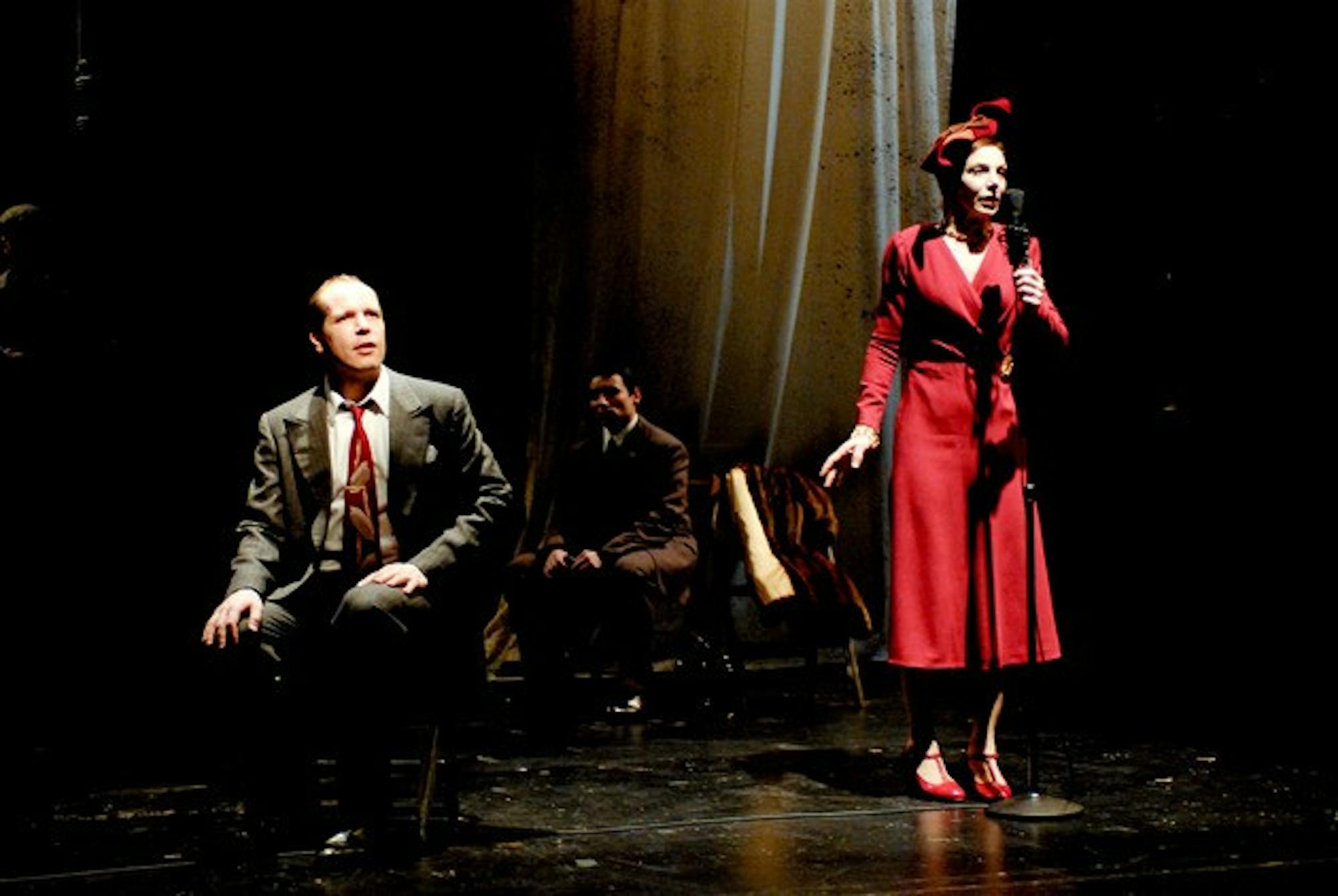Set in modern times, "Radio Macbeth" depicts a dysfunctional radio broadcasting company torn apart by love and lust as the play reads through Shakespeare's tormented script. In the performance, held on Monday night at the Moore Theater in the Hopkins Center, SITI employed an acting style that placed a unique emphasis on physicality to create an intense and edgy interpretation of "Macbeth" that kept the audience captivated to the end.
Hopkins Center Director of Programming Margaret Lawrence, who brought SITI to campus, raved about the performance of "Radio Macbeth" that she saw in New York. According to Lawrence, the reinterpretation of Shakespeare's play held the New York audience in a thrilled and frightened spell. SITI's unique acting methodology succeeded in casting the same enchantment on Monday night.
"Their approach is really refreshing," Lawrence said in an interview with the Dartmouth. "They have a very highly honed physical vocabulary, so it's not just the stereotype of Shakespeare as a recitation. What's most important is the physical vocabulary, engaging all the senses. Everything is kind of honed down to the essentials."
It is this unique approach to Shakespeare that allows the actors in "Radio Macbeth" to create a silent but powerful play hidden beneath, but not overshadowed by, Shakespeare's evocative words. Every movement the actors make is calculated to hint at a deeper meaning, to invite the audience into an alternate universe, an undercurrent beneath the Elizabethan prose.
SITI was founded in 1992 with three goals in mind: to create new theatrical work, to further international artistic collaboration and to train young artists in these innovative techniques. SITI also hosted a workshop on April 2 to teach students the two fundamental theories behind SITI's work the Suzuki method and "viewpoints" training. The company has observed these practices for 20 years, according to Ellen Lauren, who played Lady Macbeth.
These two techniques help increase awareness of the actor's body to the point where the actor develops an extra sense that connects him or her to the other actors on the stage, according to Lawrence, who attended the workshop.
"In a way, you kind of want to get out of the way and let the play come forward," Barney O'Hanlon, one of the SITI actors and choreographers, said.
The gifted "Radio Macbeth" cast of actors demonstrated the effectiveness of these techniques in their performance on Monday night.
Each actor reacted to the scenarios with a palpable sense of authenticity that made the play's descent into the darker side of human emotions all the more frightening.
"Somehow having all these other elements so honed, so sharp, makes the meaning in the words just come alive in a totally amazing way," Lawrence said. "It almost feels like there's this electricity in the air and you don't even know where its coming from."
"Radio Macbeth" has been in the SITI repertoire since 2007 and continues to tour by popular demand. The company has visited Dartmouth before, performing an adaptation of Shakespeare's "A Midsummer Night's Dream" relocated into the American midwest during the Dust Bowl. Since SITI tours globally, returning to a familiar space is a treat for the actors and the campus audience alike.
"It's good to return and be familiar with the space," O'Hanlon said. "There are people in the community who begin to understand your work."
"Radio Macbeth" will breathe modern life into "Macbeth" once more, at 7 p.m. in Moore Tuesday night.
"Even though it doesn't come off looking like avant-garde theater, it's deeply different from anything else, and very original," Lawrence said.
To miss such an innovative show would be a tragedy worth losing sleep over.




